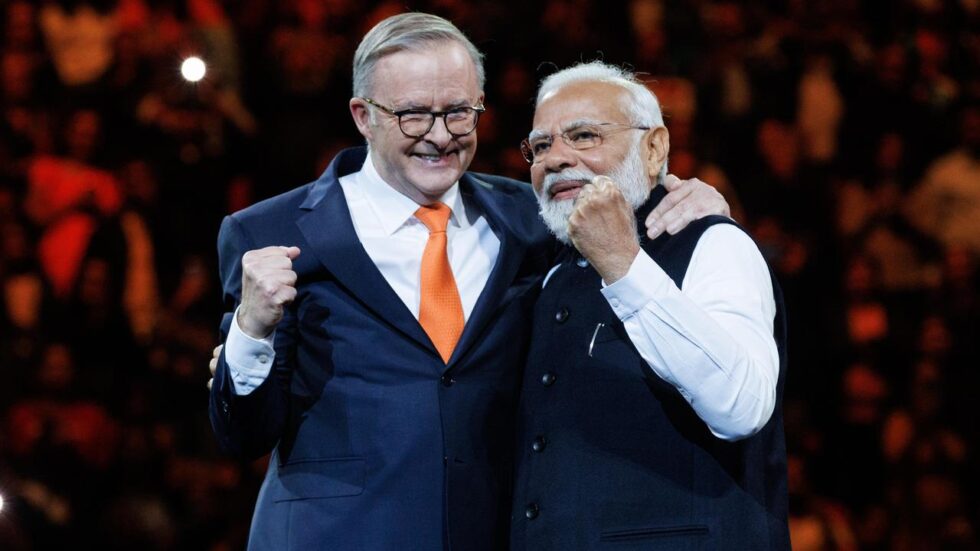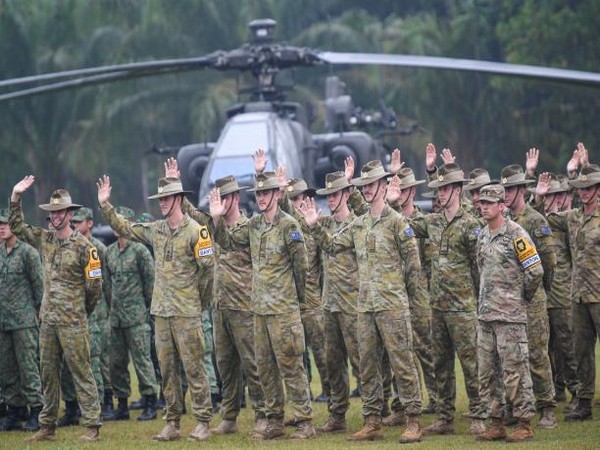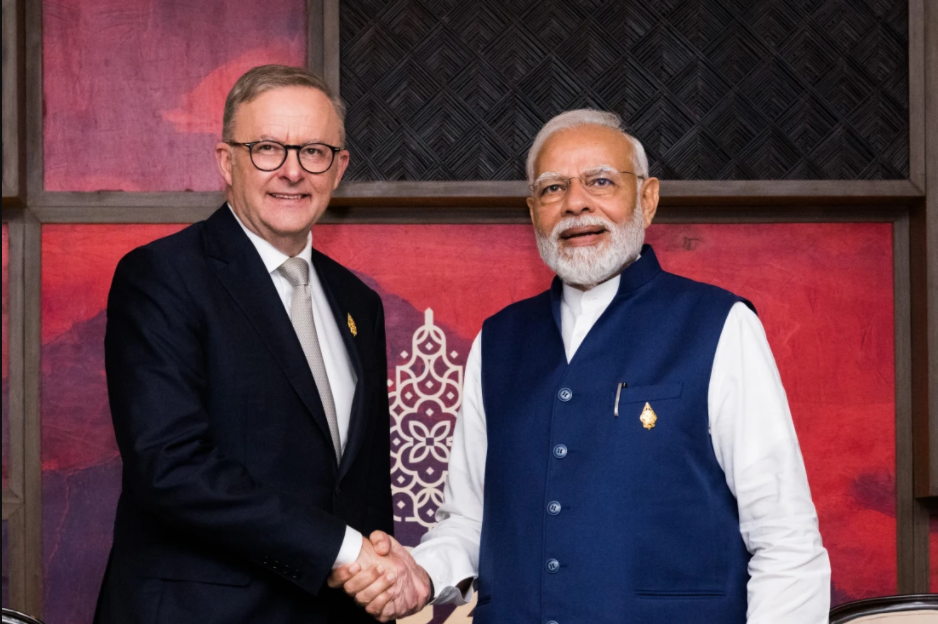Australia and India have inked a deal designed to prevent people smuggling and promote mobility between the two countries for students, researchers and businesses.
The migration and mobility partnership arrangement, signed by Prime Ministers Anthony Albanese and Narendra Modi during their sixth meeting since May last year, will “enhance cooperation” between the countries.
Indian Prime Minister Narendra Modi was welcomed to Australia like a rock star on Tuesday night at a packed event for the Indian diaspora in Western Sydney before Wednesday’s formal meeting.
Mr Albanese said the two countries were committed to strengthening their relationship.
“The Australia-India migration and mobility partnership agreement will promote the exchange of students, graduates, researchers and business people,” Mr Albanese said.
“(It will) expand our people-to-people ties and enhance cooperation in preventing people smuggling.”
Mr Modi said the agreement would “further strengthen our living bridge”.
Mr Albanese also confirmed the terms of reference on the Australian-Indian green hydrogen task force had been signed.
The task force will comprise experts from both countries reporting on opportunities for cooperation for renewable hydrogen as a means to reduce emissions in both India and Australia.
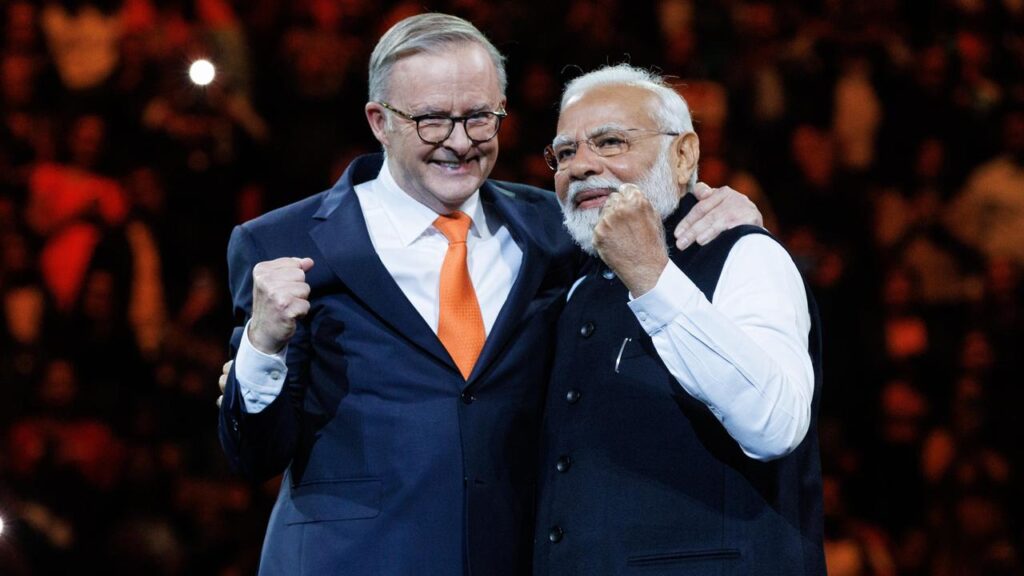
The two leaders also confirmed a new Indian consulate would soon open in Brisbane.
Earlier, Mr Albanese flagged he was unlikely to bring up human rights concerns or India’s failure to publicly condemn Russia during his bilateral.
When pressed on morning television as to whether he would bring up such issues, Mr Albanese said it was “not up to me to pass a comment on some of the internal politics in India”.
“As a democracy, they have a range of views, which is a good thing,” Mr Albanese told Channel 7.
Neither Mr Modi nor Mr Albanese made reference to the issues during their brief post-bilateral appearance, but Mr Modi did say he had raised the issue of temples and “activities of separatist elements” in Australia.
“We will not except any elements that harm the friendly and warm ties between India and Australia by their actions or thoughts,” he said.
“I thank the Prime Minister for the actions that have already been taken. Prime Minister Albanese has once again assured me today that he will take strict action in the future.”
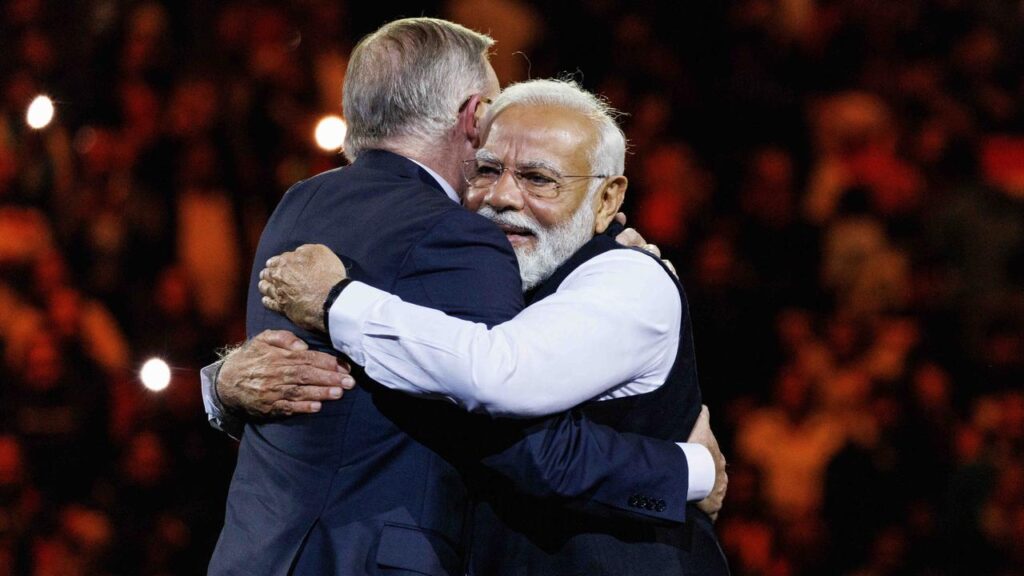
Earlier, on ABC Breakfast, Mr Albanese was asked about the members of the Indian-Australian community who protested outside the rally on Tuesday night and again outside his Sydney residence on Wednesday morning.
Mr Modi is accused of repressing his political opponents, media and of discriminating against Muslims.
Mr Albanese said Australia “always stands up for human rights”.
Senator Birmingham said Australia should “always be consistent and predictable” with its values and how they applied across the world.
“And of course, our values are our own. We don’t get to control what happens in any other country, but we should ensure that we at least convey the type of approach we think is important in relation to upholding democratic values that we share with India and develop and promote as part of those shared values,” he told ABC Radio.
“And we’ve underscored that as an important part of our shared interest in how we engage both at home and abroad.”
Mr Albanese said even if he did raise the issue, he wouldn’t “leak the text messages”, making reference to his predecessor Scott Morrison, whose texts with French President Emmanuel Macron were released to the media.
“I have a respectful relationship with Prime Minister Modi and with other leaders,” he told ABC.
India has also yet to outrightly condemn Russia’s illegal invasion of Ukraine and continues to import Russian arms.
Mr Albanese said he “respects” India’s responsibility for its own international relations, but that India continued to be a great partner for peace and prosperity.
Mr Albanese said India – which is hosting G20 this year – had been party to the G20 statement last year which condemned Russia.
“India is a great supporter of peace and security and stability in our region,” he said.
Senator Penny Wong said Australia continued to stand with Ukraine and noted India had given public support for Ukraine’s sovereignty.
“I would note that Prime Minister Modi met with President Zelenskyy (in Hiroshima for G7), and after that meeting President Zelenskyy welcomed India’s support for Ukraine’s sovereignty, which is the position Australia takes,” she told Channel 9.

